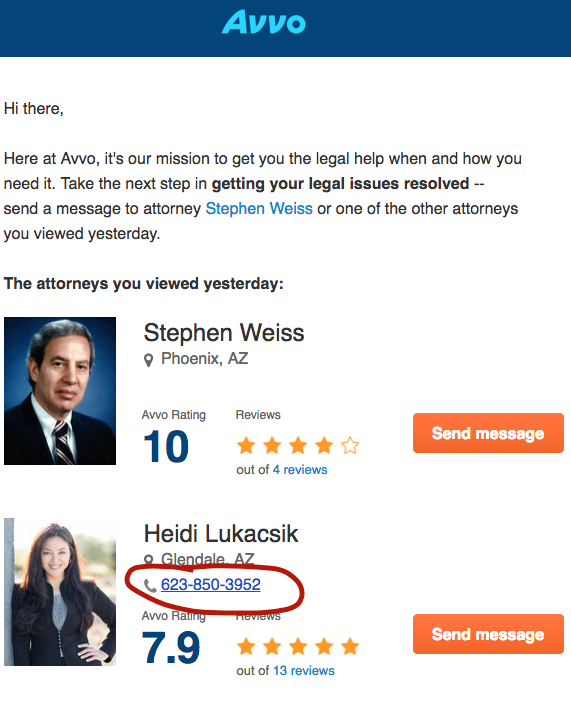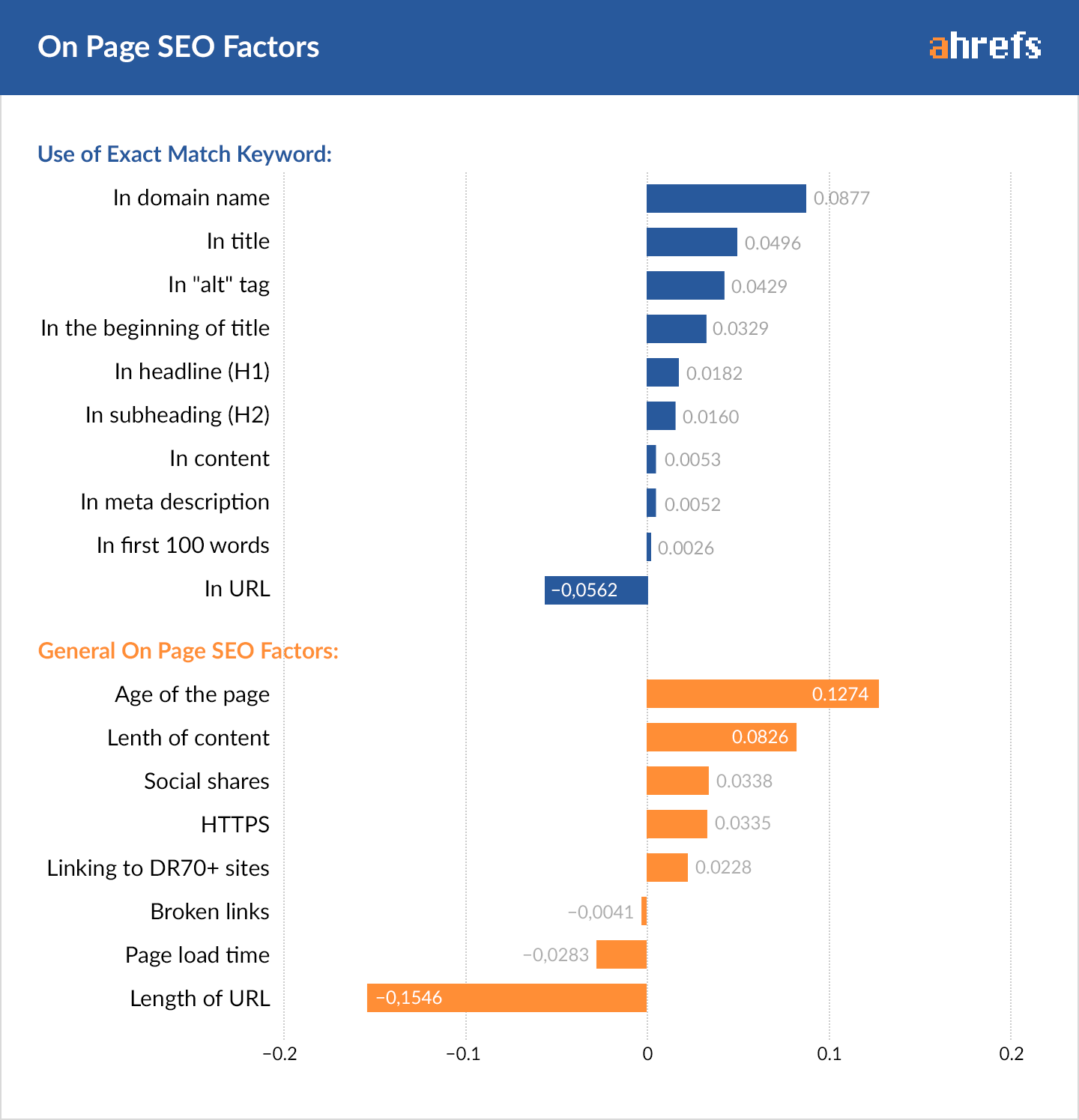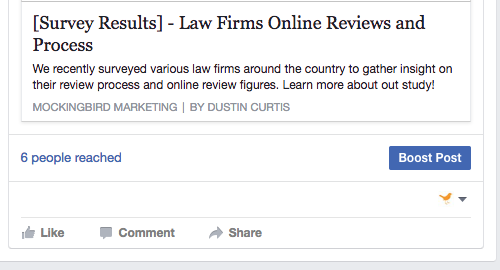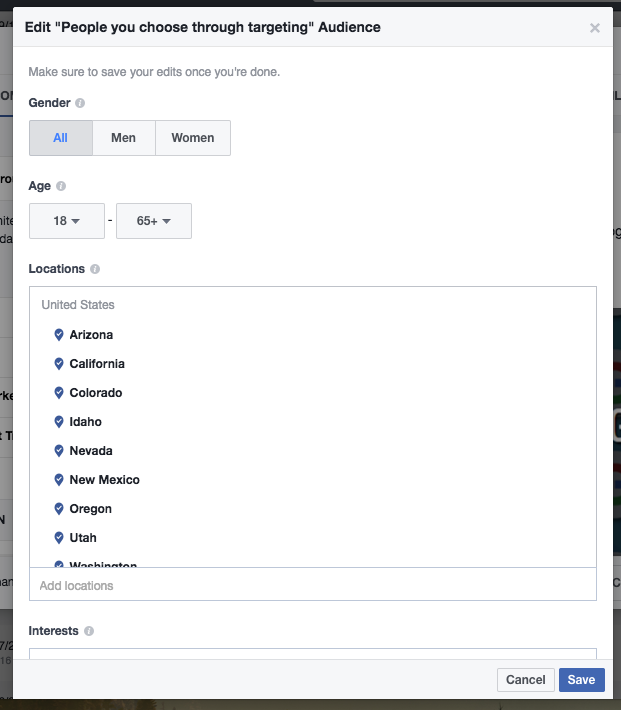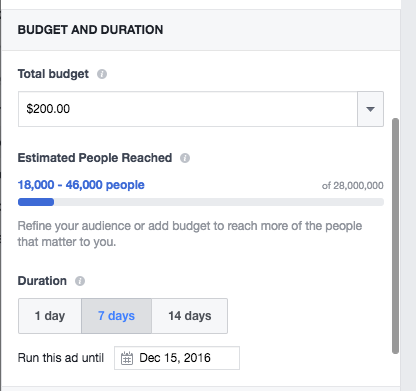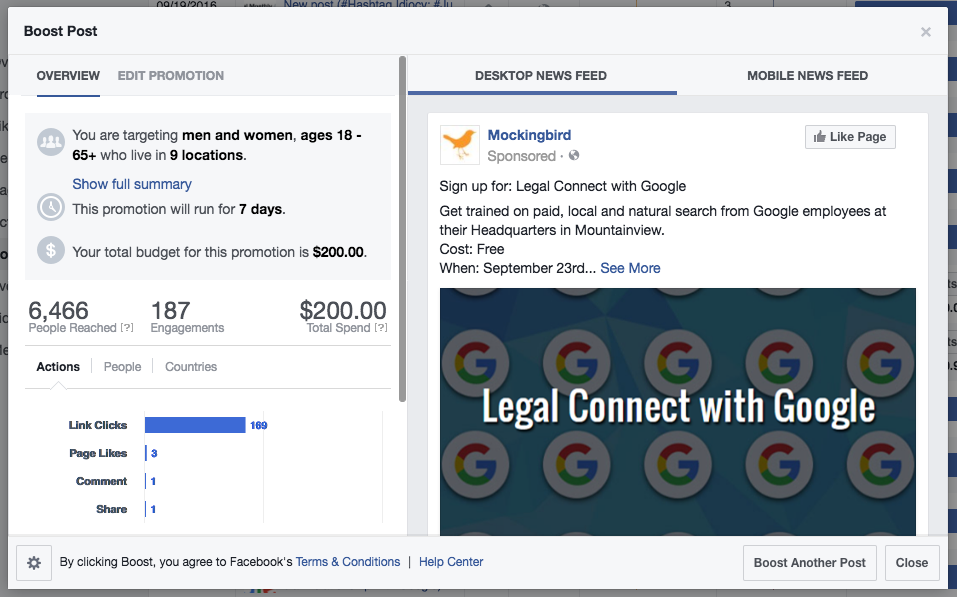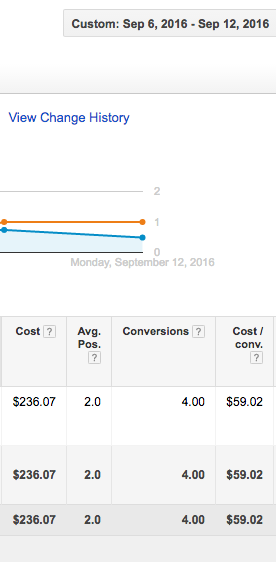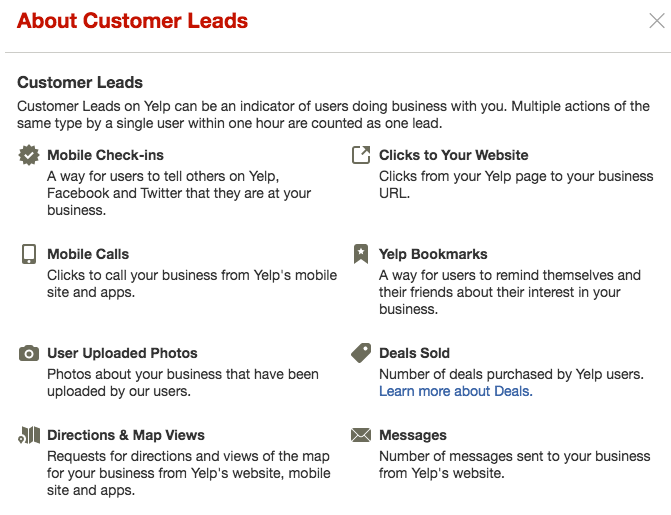The number one reason I love Google AdWords (aside from us now being a Premier Partner) is that their advertising platform enables you to target potential clients who are actively searching for your service. Not only do they place your ad in front of users who are searching for your service, but you can actually see what they searched for before clicking your advertisement. This transparency gives you an immense amount of power. In this post I’ll describe how to use that search data to quickly and easily perform 2 key tasks:
- Identify negative keywords
- Content idea generation
How to Access Your Search Terms Data
Let’s take a step back. The first thing you need to do is navigate to your “Search Terms” tab in your Google AdWords dashboard. Follow these steps…
- Login to Google AdWords
- Navigate to the specific campaign you want to work on
- Select the “keywords” tab and then select “search terms” in the second menu so you see a screen similar to this:

Now that you can see how people are finding and clicking on your ads, you’re ready to use that data. Take a minute to scroll through your search terms; if it’s your first time, you may be surprised at what you find.
Identifying and Adding New Negative Keywords
Now that you’re looking at the list of search terms you’ve paid for – you’ll want to identify anything that is irrelevant or not likely to lead to conversions. It’s good to go through at least every few weeks (more frequently if you are running a large budget campaign) and make sure you are excluding terms you don’t want to pay for in the future.
Here are some real client examples from an immigration attorney…
- “is rihanna getting deported” (I don’t think this person is looking to hire a deportation defense attorney for Rihanna.)
- “immigration paralegal openings in clearwater utah” (Unfortunately the law firm isn’t located in Utah and not looking to hire new paralegals.)
- “how many immigrants has trump deported” (Albeit an interesting question… this client doesn’t have the answer, and more importantly, this person is not looking to hire an attorney.)
If you find terms like this that you want to exclude from triggering your ads, simply select the checkbox next to the search term and then scroll to the top navigation and click the “add as a negative keyword” button.
It’s important to mention that as a best practice, you should upload a list of negative keywords before ever launching your AdWords campaigns. This way you are proactively mitigating the irrelevant and unprofitable keywords. Here are some freebies we include on most of our campaigns (dependent on practice area of course):
- Cheap
- Pro bono
- News
- Job
- School
- Statistics
Using Search Terms Data for Content Idea Generation
The queries you find in your search terms data can be utilized as a tool for organic search strategy as well. This list of terms is often a goldmine for generating new content ideas. You can see what people are interested in and actively searching for and make sure you have content on your site that answers those questions. Once more, if you already have relevant content, you can use the search terms report to get insight into how you can optimize the content on page to match the searchers verbiage.
For example, here are more examples from the same immigration attorney…
- “can I get a green card by marrying a permanent resident?“
- “which green card is safe from deportation?“
- “what are the newest immigration laws?“
All of these questions can and should be used as a springboard for new content. If you can become the trusted resource for information about your practice area than you are winning.
Wrapping Up
Make sure you are not neglecting the search terms report in Google AdWords. Not only will it help you cut costs and focus on the relevant queries that drive business, but it can also help support your content and overall SEO strategy.
